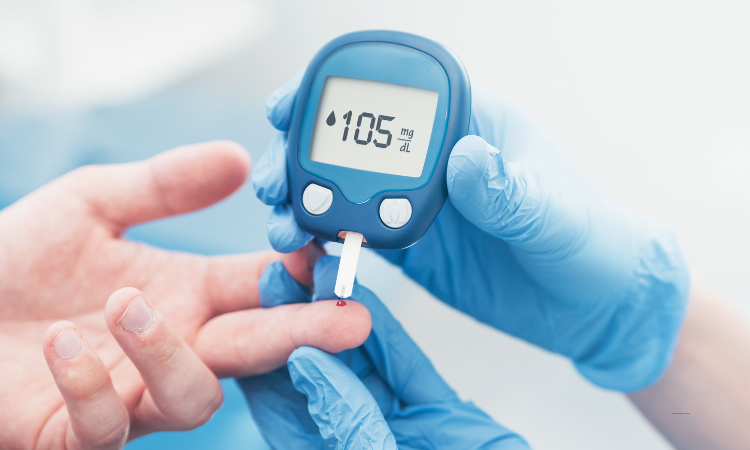What mental health resources are available for teens?
Mental health has never been more important in the present world, which moves on the wheels of speed and digital connections. The teenage phase is a stormy stage of life: physiological, emotional, and social changes happen almost at jet speed, taking a heavy toll on teenagers, who often get submerged by anxiety, depression, and other mental disorders. When young people learn about such issues early and ways to cope, it makes all the difference in their lives and puts them on the right track toward a healthier and happier future.
This article hopes to shed some light into the mental resources available for teenagers. If you are a parent, guardian, teen, or just an advocate for mental health, this guide will give you a great deal of insight, practical tips, and useful resources to help with supporting teen mental health best.
Overview of Common Mental Health Issues in Teens
Teens today face a myriad of pressures from academic performance to social interactions and body image concerns. Common mental health issues that affect teens include anxiety disorders, depression, ADHD, and eating disorders. Each of these conditions can severely impact a teen’s ability to perform daily activities, maintain relationships, and enjoy life.
Anxiety disorders are prevalent among teens and can manifest as excessive worrying, panic attacks, and social anxiety. Depression in teens can show up as persistent sadness, loss of interest in activities they once enjoyed, and feelings of hopelessness. ADHD affects a teen’s ability to concentrate and control impulsive behaviors, while eating disorders like anorexia and bulimia involve harmful eating behaviors linked to distress about body weight and shape.
Recognizing the symptoms and understanding these conditions’ impact is the first step toward seeking help and finding effective treatment options.
Available Professional Teen Mental Health Services
When it comes to addressing mental health issues, professional help is often necessary. Several types of teen therapy near me are available, each offering unique benefits tailored to individual needs.
Psychologists and Psychotherapists are trained to help teens through various forms of therapy, such as cognitive-behavioral therapy (CBT), which focuses on changing unhelpful thought patterns and behaviors. Family therapy can also be beneficial, addressing family dynamics that contribute to a teen’s mental health issues.
Psychiatrists are medical doctors who can diagnose mental health disorders and prescribe medications if necessary. Some teens may require medication to manage their symptoms effectively.
School counselors and social workers provide support within the educational environment, offering a safe space for teens to discuss their issues and guiding them toward appropriate resources.
Self-Care and Coping Mechanisms for Teens
In addition to professional help, self-care practices play a crucial role in maintaining mental health. Encouraging teens to adopt healthy habits can empower them to manage stress and build resilience.
Regular physical activity, such as jogging, swimming, or yoga, has been shown to improve mood and reduce anxiety. Encouraging teens to find an activity they enjoy can make exercise a fun and beneficial part of their routine.
Mindfulness and meditation are powerful tools that can help teens stay grounded and focused. Simple practices like deep breathing exercises or guided meditation apps can be easily integrated into their daily lives.
Creative outlets, such as drawing, writing, or playing a musical instrument, provide a healthy way for teens to express their emotions and process their experiences. These activities can be incredibly therapeutic and foster a sense of accomplishment and joy.
Online and Community Resources for Teen Mental Health
The digital age has made mental health resources more accessible than ever. Numerous online platforms offer support and information specifically tailored to teens.
Websites like TeenMentalHealth.org and JED Foundation provide educational materials, self-assessment tools, and directories of mental health services. These platforms empower teens to learn more about their mental health and seek the right help.
There are also various hotlines and chat services, such as the Crisis Text Line, which offers immediate support through text messaging. Teens can reach out to trained crisis counselors anytime they need urgent help.
Community resources, such as local mental health organizations and support groups, offer in-person connections and peer support. These organizations often host workshops, meetups, and events that provide a sense of community and shared understanding.
Tips for Parents and Guardians on Supporting Teen Mental Health
Parents and guardians play a pivotal role in supporting their teen’s mental health. Open communication is vital; creating a safe, non-judgmental space where teens feel comfortable discussing their feelings can make a significant difference.
It’s essential for parents to educate themselves about mental health issues and the signs that may indicate their teen is struggling. Being informed helps in recognizing when professional help might be needed and understanding the treatment process.
Encouraging healthy routines, such as regular sleep, balanced nutrition, and consistent physical activity, can help teens maintain overall well-being. Parents should also model these behaviors, demonstrating the importance of self-care.
Building a supportive network of family, friends, and professionals ensures that teens have multiple sources of support and encouragement.
Real-life Stories of Teens Overcoming Mental Health Challenges
Hearing about others who have faced and overcome mental health challenges can be incredibly inspiring and reassuring for teens.
Take, for example, Emma, a high school student who struggled with severe social anxiety. With the help of her school counselor and regular CBT sessions, Emma learned to manage her anxiety and gradually became more comfortable in social situations. Today, she is an active member of her school’s debate team and enjoys participating in group activities.
Another story is that of Liam, who battled depression during his sophomore year. Through the support of his family and medication prescribed by a psychiatrist, Liam found the strength to push through his darkest days. He now volunteers at a local youth center, helping others who face similar struggles.
These stories highlight the power of seeking help and the possibility of recovery, providing hope and motivation for those currently facing challenges.
Conclusion
Mental health is a crucial aspect of a teen’s overall well-being, and addressing it early can have long-lasting positive effects. By understanding common mental health issues, exploring available resources, and fostering supportive environments, we can make a significant impact on teens’ lives.
Remember, seeking help is a sign of strength, not weakness. Whether you’re a teen, parent, or mental health advocate, the resources and tips shared in this blog can guide you in supporting teen mental health effectively.
If you or someone you know is struggling, don’t hesitate to reach out to a trusted professional or community resource. Together, we can build a supportive, understanding community that champions mental health for all.






